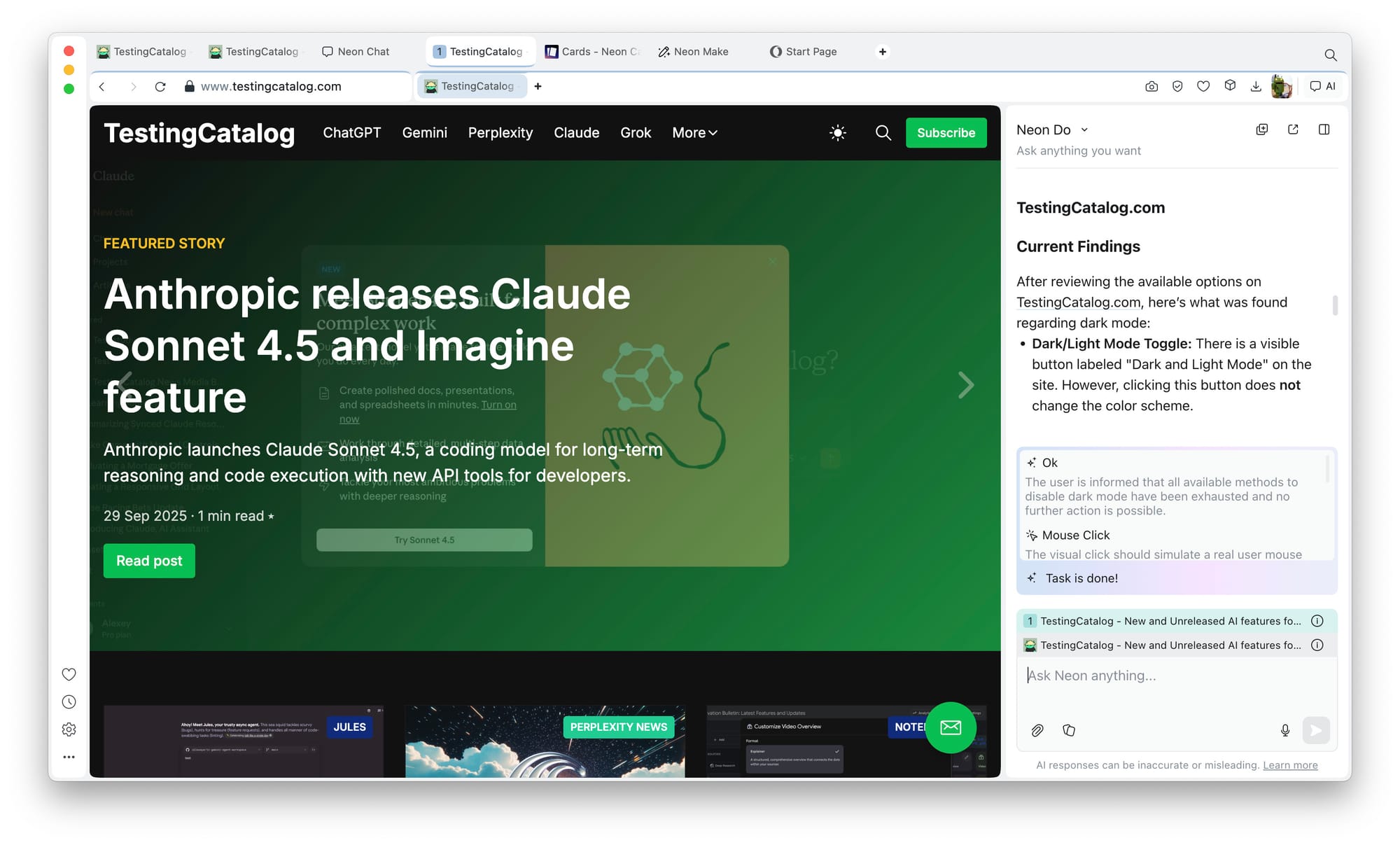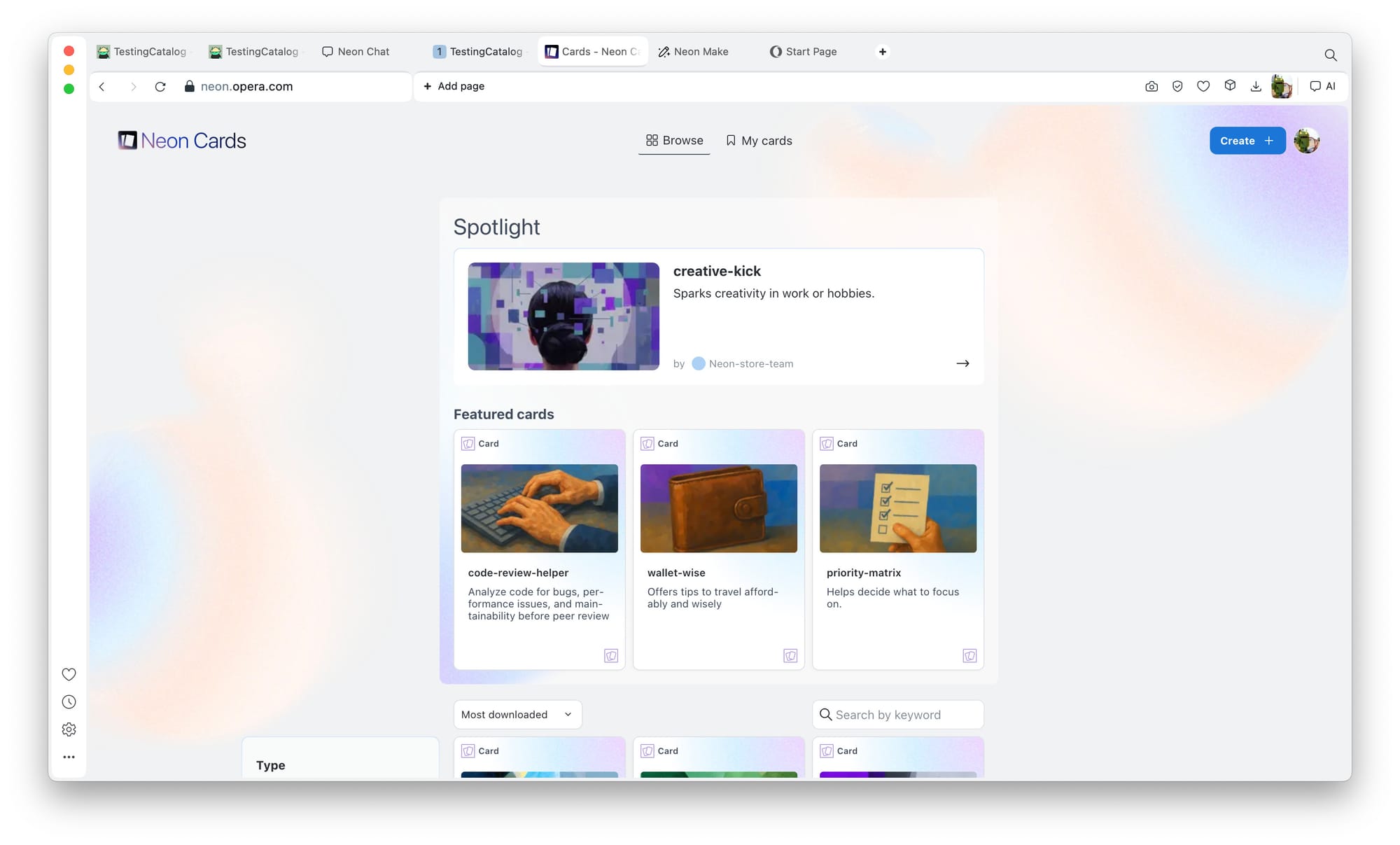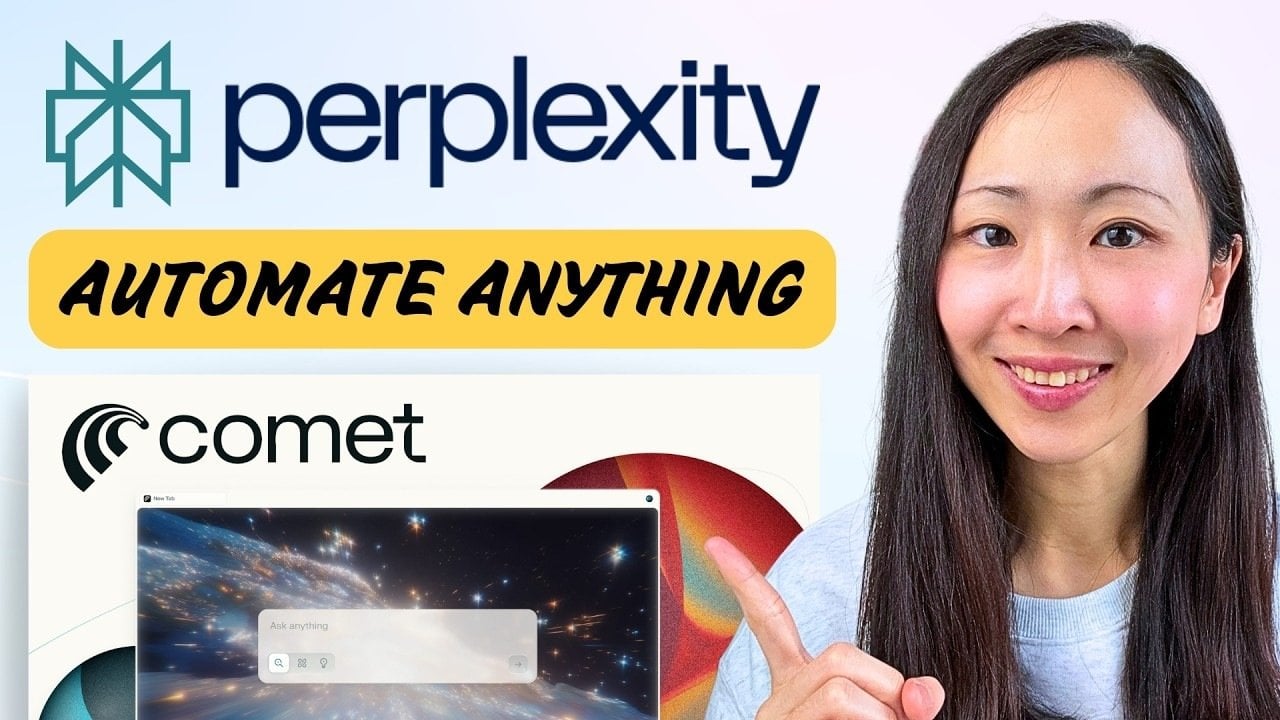Opera’s Neon browser is entering the market as a subscription-only, early access product, targeting users who signed up for early invitations. The initial offer, nine months for $59, positions Neon as a paid alpha, aiming at early adopters and testers interested in shaping the product’s evolution. Those purchasing the founder-tier gain not only access but a direct feedback loop with Opera’s development team, a dedicated community, early access to new features, and eventually the ability to invite others.
Opera started inviting early adopters to get into a Founder version of their upcoming AI browser Neon.
60$ for 9 month of subscription. Loads of Agentic perks inside.
Will share a review soon 👀 pic.twitter.com/N1O8XPb65v
— TestingCatalog News 🗞 (@testingcatalog) October 3, 2025
Neon stands out by integrating agentic AI features into a familiar Opera-based interface, available on Windows and macOS. The main entry point is a multi-mode prompt bar offering four modes:
- @neon – Traditional browsing
- @chat – AI chat
- @do – A “Do” mode where the browser acts as an autonomous agent on websites
- @make – A “Make” mode for generating applications, images, and canvases
The sidebar resembles what’s seen in Microsoft Edge and other new AI browsers, letting users summarize and discuss open pages with AI. Notably, “Do” mode enables automated website navigation and data extraction, apparently leveraging automation technologies similar to Playwright for real browser control, albeit with some latency.

For creative and workflow automation, Neon supports custom prompt “Cards,” echoing the skills or extensions model seen in browsers like Dia. Users can create, share, and install these cards to automate or enhance chat-driven workflows. Model-wise, Neon combines GPT-4.1, Gemini 2.5, and OpenAI’s Image-1, mixing capabilities for both text and image generation.

Opera’s overall product direction here is clear: bringing an agentic, extensible browser experience to power users seeking AI-driven automation, background tasks, and creative tools within their workflow. While the feature set is robust for an alpha, some UI roughness and performance lag remain, particularly with agentic tasks. However, Opera’s willingness to solicit feedback from founders and iterate quickly suggests that Neon could soon join the ranks of competitive AI-first browsers like Perplexity’s Comet, Microsoft Edge’s Copilot, and others. Early adopters, especially those interested in AI-powered browsing and workflow automation, are likely to benefit most from Neon’s current offering.
